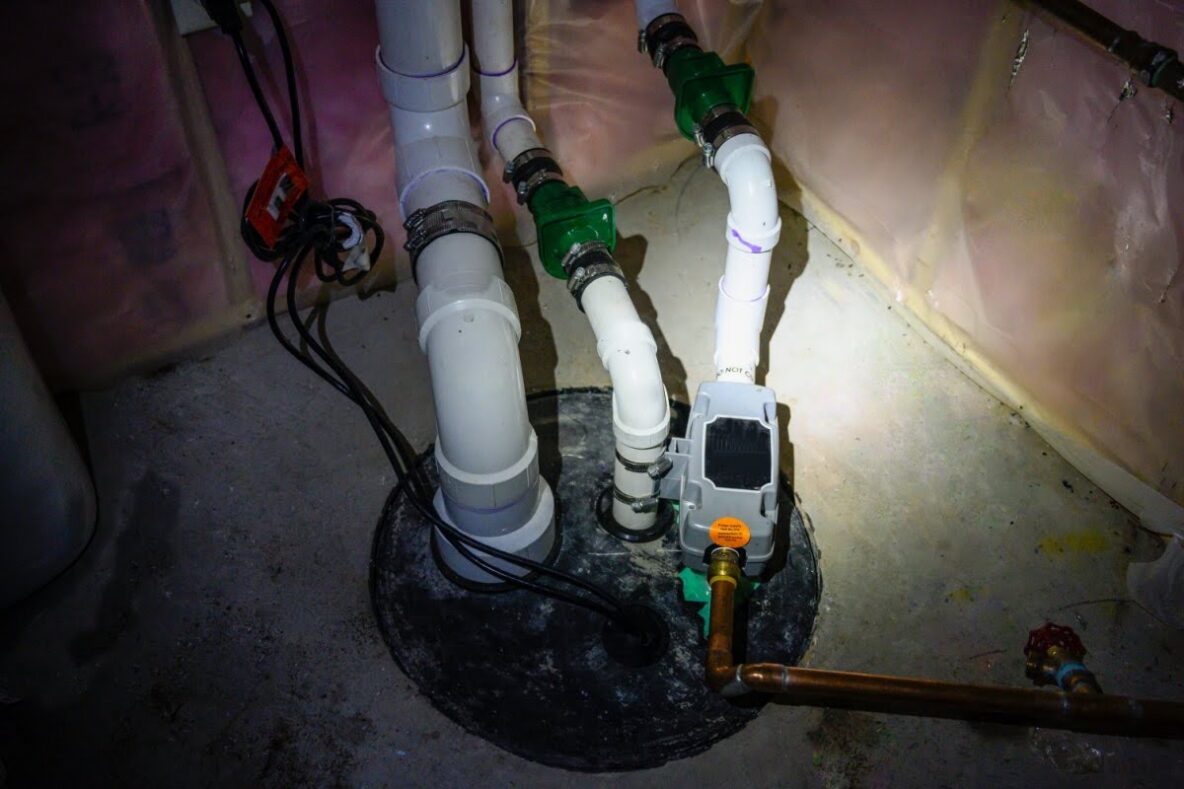The house goes dark and quiet during a power outage, and your first thoughts might turn to flashlights and candles. Soon after, another question surfaces: can you still use the sinks, showers, and toilets? The answer is a mix of yes and no, depending on the type of systems in your home. When you need clear answers and reliable solutions for your home’s plumbing, Saffer Plumbing is ready to help. We offer a wide range of plumbing solutions, including expert plumbing repair, sump pump services, and water heater services, to keep your home protected.
Plumbing and Power — What You Need to Know
Your home’s plumbing is an intricate web, and its connection to your electrical system is not always obvious. Many fixtures operate using the simple forces of gravity and water pressure, remaining functional without electricity. Others, however, rely on your home’s power supply to operate. Knowing which is which is key to getting through an outage without causing a bigger problem.
Can You Flush the Toilet Without Power?
For most households, the answer is yes. A standard toilet operates on a gravity-fed system. When you flush, gravity pulls the water from the tank into the bowl, and the pressure from your water supply refills the tank for the next use. If you have a toilet with an electric pump, common for basement bathrooms, you will not be able to flush toilet fixtures safely until the power returns.
If you rely on a septic tank that uses a pump to move sewage, your toilet will still flush during a power outage. However, it’s important to note that the tank’s pump will not be able to move wastewater to the drain field until power is restored. So, with this in mind, try and conserve water by limiting your flushes.
What About Running Water?
Your access to running water during a power outage depends on your water’s origin. If your home connects to a municipal water supply, you should still have running water. These large-scale systems use pumps that are often supported by a backup power supply. If your home uses a private well, however, your water will eventually stop flowing. This is because the well pump requires electricity to draw water from the ground and send it through your home’s pipes.
Hot Water Availability During an Outage
Taking a hot shower during a power outage is a possibility for some, but not for all. Your hot water heater type is the deciding factor. An electric hot water heater will not function without a power supply. A gas-powered unit might work if it has a continuously burning pilot light to ignite the fuel. Many modern gas heaters, however, use an electric ignition system and will not be able to produce heat. Any water already hot in the storage tank will be available, but it will not be replaced.
Appliances That Rely on Electricity
Several plumbing-related appliances depend directly on electricity. Sump pumps, for example, protect your basement from flood conditions and sewage backups, but they stop running once electric power is lost. Washing machines, dishwashers, and hot water heaters with electric controls also stop during outages. Without a backup, these appliances can leave your home vulnerable to water damage and plumbing emergencies.
How to Prepare for Future Power Outages
A little bit of planning can make a world of difference when the lights go out. Some of the most significant actions to take before the next power outage include:
- Install a Battery Backup for Your Sump Pump: This provides your pump with its own power source, allowing it to continue working and protecting your basement from water damage even without electricity.
- Consider a Standby Generator: A generator can power essential appliances, including your well pump, sump pump, and hot water heater, allowing for near-normal function during an emergency.
- Know Your Systems: Determine if you are on city water or a well, and check if your gas water heater has a pilot light or an electric ignition system.
- Have an Emergency Water Supply: Keep a supply of bottled water on hand for drinking and sanitation, especially if your home operates on a well.
When to Call a Plumber
A power outage can sometimes trigger a genuine plumbing emergency that requires professional attention. If you encounter any of the following issues, you should contact a plumber immediately.
- Sewage Backup: If you notice sewage backing up into a drain, shower, or toilet, it is a serious issue that needs an expert. This is especially critical for homes with a septic tank.
- No Water After Power Returns: If electricity is restored but your faucets still run dry, there could be a problem with your well pump or a pressure issue in the pipe system.
- Signs of Leaks or Water Damage: An outage can sometimes mask the sounds of a leak. Once power is back, do a quick check in your basement and around appliances for any signs of trouble.
Reach Out for More Plumbing Tips & Excellent Services
A power outage does not have to leave you feeling helpless when it comes to your plumbing. With the right guidance and preparation, you can protect your water supply, keep your drains safe, and reduce the risk of emergencies in your home.
At Saffer Plumbing, we offer trusted plumbing services to help with sump pumps, hot water heaters, and every part of your system. Call us today for expert support, reliable solutions, and friendly advice that keeps your home protected.

